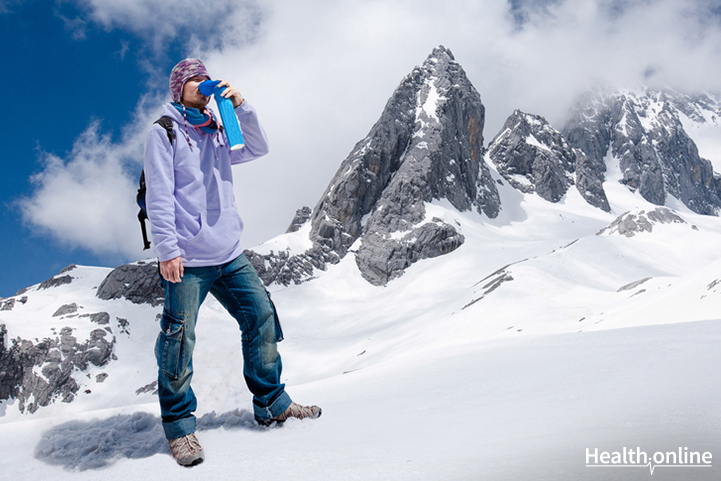
How To Deal With Altitude Sickness
You might be brimming with enthusiasm and passion, and planning to travel for miles, and as high as you can get. But you have a major obstacle in your path if you suffer from altitude sickness. You needn’t worry, however. There are various steps you can take to deal with high altitude sickness, and thus enjoy riding your bike to the top of the mountain or skiing down the mountain slopes.
What is altitude sickness?
Altitude sickness is a potentially dangerous condition that a person may experience while moving up a hill or any other high altitude area. It is an uncomfortable feeling, which can be mild or severe – even becoming life threatening in certain situations.
The amount of the oxygen in the air decreases with an increase in altitude. As a result, your body faces a number of issues, without the required level of oxygen. If you are over 8000 feet from sea level, the oxygen level is very low – causing you to suffer breathing issues and body cramps, as you body cannot adapt to such low levels of oxygen. Moreover, the dry weather and chilly wind, along with increased closeness to the sun’s rays, might make you feel more uncomfortable if you are not that accustomed to these conditions.
So, while traveling high altitudes, you need to know whether you are prone to high altitude sickness or not, and if you are, then you need to take proper measures before heading off to explore the mountains.
What are the symptoms of altitude sickness?
You need to understand the signs, in order to take necessary steps to prevent or control altitude sickness. The common symptoms are:
- Severe and throbbing headaches while falling asleep or waking up.
- The decrease in appetite.
- Vomiting, stomach issues, and irritation.
- Fatigue.
- Sleep disorder.
- Dizziness.
If you are facing these problems, you should consult a doctor immediately, and take precautionary measures.
How to prevent altitude sickness?
- Slow but steady win the race: Diligently follow this old adage while you are exploring the beauty of high altitude areas. When the oxygen level drops drastically as you move to a higher altitude, your body needs time to adjust to the decreasing levels of oxygen. If you ascend at a faster rate, your body will not be able to properly adapt to the surrounding conditions, as it will not get the proper amount of time to adjust to the decreasing levels of oxygen. It is recommended to climb or ascend not more than 1000 feet a day.
- Don’t sleep much: As the oxygen level of the body decreases drastically while sleeping, it is recommended not to sleep much while at higher altitudes, as the oxygen level is lower up there, to begin with. You can book hotels in lower elevation areas, so that after the day’s journey, you can return to your room and get a peaceful sleep, without worrying about altitude sickness.
- Altitude sickness medication: If you are feeling uncomfortable, and your doctor has already prescribed altitude sickness medication, in case of severe health issues on a higher altitude, never miss a dose. Take medication at the right time to avoid any major health problem on the mountains.
- Avoid smoking alcohol as much as possible: It is necessary to reduce the consumption of alcohol or cigarettes when traveling at high altitudes, as these elements adversely affect your already weakened body. Moreover, due to the lower amount of oxygen, you might be already facing breathing issues; and smoking under these circumstances will only make the problem worse, and even potentially life-threatening.
- Mild exercises: If you are going to stay in the mountains for more than a couple of days, then you must not engage in heavy exercises in the beginning, and instead go easy on your body when it comes to working out. As the days pass by, you can gradually increase your exercise levels.
How to treat altitude sickness?
The practical measures that you can adapt to handle altitude sickness when no doctor is available, are as follows:
- Eating a lot of carbohydrates, so that your body has enough energy to ascend to high altitudes.
- Keeping yourself well-hydrated at all times, as the dryness of the higher altitudes absorbs moisture, and will keep depleting the water content of your body.
- If you are not feeling well, you should take rest, and move up further, until the symptoms disappear
- You must carry pain relievers while traveling to high altitudes.
- You must try and move to lower ground to spend the night, if possible.
- In severe cases, medical intervention is required, so be sure to check the emergency medical arrangements at your destination.




